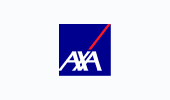Directors and Officers Liability Insurance
Directors and Officers (D&O) Liability Insurance is designed to protect the personal assets of a company’s directors, officers, and key executives against legal claims arising from wrongful acts, errors, or omissions committed in their corporate roles. In Hong Kong, this form of insurance has become a cornerstone of sound corporate governance, especially after legislative changes such as the introduction of the new Companies Ordinance which have heightened the legal accountability of company leadership. D&O insurance provides financial backing for defense costs and settlements in the face of lawsuits by shareholders, employees, regulatory bodies, creditors, and other third parties

Saving You Time & Money While Shopping For Insurance
Get Free Insurance Quotes
Fill out our inquiry form, and we'll identify the perfect policy to suit your requirements and lifestyle.
Emergency Hotline: +852 2530 2530
Directors and Officers Liability Insurance Insights
Increasing Legal Liability for Directors and Officers
The Hong Kong Companies Ordinance (Cap. 622) significantly increased the personal liability of directors and officers for both public and private companies. Directors and senior managers can be held responsible by a wide range of parties, from shareholders and creditors to regulators and employees, for allegations such as negligence, misrepresentation, insider trading, or breaches of fiduciary duties
Comprehensive Coverage Structure
A D&O policy typically offers three main types of protection:
- Side A: Direct coverage for directors and officers when the company cannot indemnify them.
- Side B: Reimbursement to the company when it has indemnified directors or officers.
- Side C: (For publicly listed companies) Entity coverage for claims made directly against the company itself—though this is less common in private company policies
Corporate Governance Best Practice
The Hong Kong Stock Exchange requires listed companies either to maintain appropriate D&O insurance for their directors or to disclose in their annual reporting if they do not, positioning D&O insurance as an established best practice in local corporate governance
Directors and Officers Liability Insurance FAQs
D&O insurance covers defense costs, settlements, and damages related to claims against directors and officers for alleged wrongful acts, errors, or breaches of duty made in the course of managing the company
Hong Kong law has increased the accountability of directors and officers, exposing them to more lawsuits from shareholders, competitors, customers, regulators, and employees. D&O insurance helps mitigate the associated financial and reputational risks
Any individual in a corporate leadership or decision-making position including directors, officers, general managers, and “responsible persons” as broadly defined under Hong Kong law should be covered. This applies to both listed and private companies
No. The Companies Ordinance restricts a company’s ability to indemnify directors, especially for liability owed to the company itself or to third parties except in very limited circumstances. D&O insurance fills these gaps by covering liabilities the company cannot legally indemnify
Yes. The term “officers” in Hong Kong includes senior management, head of departments, CEOs, CFOs, and even line managers, depending on their responsibilities, and they are covered along with directors under most D&O policies
D&O insurance is not legally mandatory; however, for listed companies, the Hong Kong Stock Exchange requires either adequate coverage or public disclosure if insurance is not maintained. It is highly recommended as a best practice for all sizable companies
Common triggers include allegations of mismanagement, breach of fiduciary duty, financial misstatements, employment practice violations, regulatory investigations, insider trading, and anti-competitive behavior
Typically, D&O policies exclude coverage for criminal acts, knowingly fraudulent conduct, and intentional violations of the law, although defense costs may be advanced until a final judgment is made
Latest News & Articles
- Car Insurance, Electric Vehicles, English, first-time buyers, General Information, Hong Kong Drivers, Hong Kong News, motor insurance, Uncategorized
- HK Insurance Market, Hong Kong News, local protection, motor insurance
- Corporate Risk Management, Employers' Insurance, English, General Information, HK Insurance Market, Hong Kong News, HR Compliance & Legislation, Insurance Tips & Guides, Uncategorized
- Community & Lifestyle, Expat & Hong Kong Residents, Insurance Tips & Guides, local protection, Travel Insurance, Uncategorized
- Claims, Community & Lifestyle, General Information, Hong Kong News











